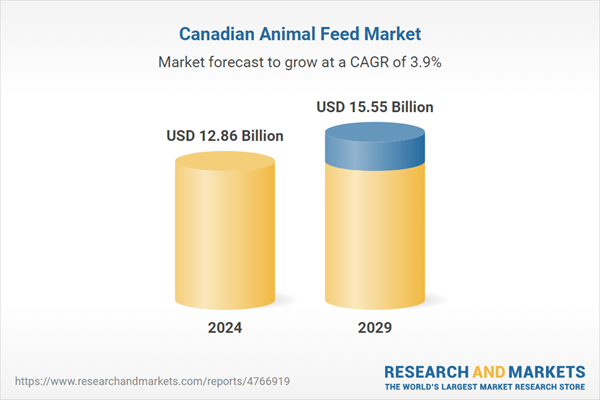Animal farming in Canada holds various growth opportunities and with the improving sustainable practices, the overall farming scale is expected to show positive growth.
Moreover, Canada is also one of the leading feed-producing nations and with the ongoing increase in the feed demand followed by growing principal grain production and implementation of policies related to animal nutrition, the animal feed market is expected to grow at a constant pace in the country. However, extreme weather conditions, loss of grassland, and disease outbreaks are posing a challenge for market expansion.
Market Drivers
Positive growth in livestock production is expected to drive the market expansion.
Canadian livestock farming harbours cattle & calves, sheep, lambs, and hogs among other animals, and with the growing livestock production, the emphasis on improving overall health will bolster the demand for qualitative feed in Canada. According to Statistics Canada, in 2023, livestock receipts reached $37.3 billion which represented a 9.8% increase over the previous year. As per the same source, the cattle managed & supply receipts experienced 5.7% growth.Likewise, according to the Animal Nutrition Association of Canada, in 2022, livestock feed consumption reached 29.2 million tons which signified 1% growth over 2021 and 1,6% over 2020. The growing cattle prices followed by an increase in overseas demand especially in the US market are driving the feed demand in Canada, to improve the meat quality.
Growing end-user demand has stimulated the feed market growth in Canada.
Feed is majorly produced from principal grains such as wheat, corn, and barley, as they are rich in fiber and proteins which are essential for an animal’s gut health and reduce the risk of disease thereby improving the animal’s overall health and productivity. The growing feed demand from livestock farmers for improving their dairy and meat product quality has provided a major scope for feed production in Canada.According to the USDA’s “Feed and Grain Annual” issued in April 2024, corn feed and residual production stood at 10.6 million tons for MY2023 which represented a 10.65% growth over 2022’s production volume, and in 2024 the production is expected to reach 10.7 million tons. Moreover, as per the same source, besides corn, barley feed production is expected to reach 5.6 million tons for MY2024, thereby showcasing 3.7% growth over 2023.
Favorable government initiatives to bolster animal health will propel the market growth.
Demand for high-protein products is on the rise in Canada and with growing awareness, regarding animal disease outbreaks various efforts are being made by the Canadian government to bolster animal nutrition. For instance, in March 2024, the Minister of Agriculture and Agri-Food and the Canadian Food Inspection Agency announced investments of $1,697,850 for protecting Canadian livestock from diseases such as Foot and Mouth Disease (FMD) and African Swine Fever (ASF).Such investments to bolster animal health will also drive the demand for proper nutrition thereby propelling the overall feed demand in Canada.
Key Developments
- In January 2023- Danisco Animal Nutrition & Health, an IFF business unit, announced that the Canadian Food Inspection Agency (CFIA) approved Enviva PRO and Syncra SWI. The incorporation of the newly approved feed solutions into poultry and swine diets provides Canadian producers with more consistent animal performance throughout the year.
Segmentation:
By Type
- Fodder
- Forage
- Compound Feed
By Livestock
- Pork
- Aquatic Animal
- Cattle
- Poultry
- Others
By Raw Materials
- Soya
- Canola
- Rendered Meal
- Others
By Production System
- Integrated
- Commercial Mills
Table of Contents
Companies Mentioned
- Alltech
- Cargill, Incorporated
- Kemin Industries, Inc.
- BASF SE
- Archer Daniels Midland Company
- Hi-Pro Feeds
- DeKalb
- Floradale Feed
- Prorec
Table Information
| Report Attribute | Details |
|---|---|
| No. of Pages | 114 |
| Published | May 2024 |
| Forecast Period | 2024 - 2029 |
| Estimated Market Value ( USD | $ 12.86 Billion |
| Forecasted Market Value ( USD | $ 15.55 Billion |
| Compound Annual Growth Rate | 3.8% |
| Regions Covered | Canada |
| No. of Companies Mentioned | 9 |









